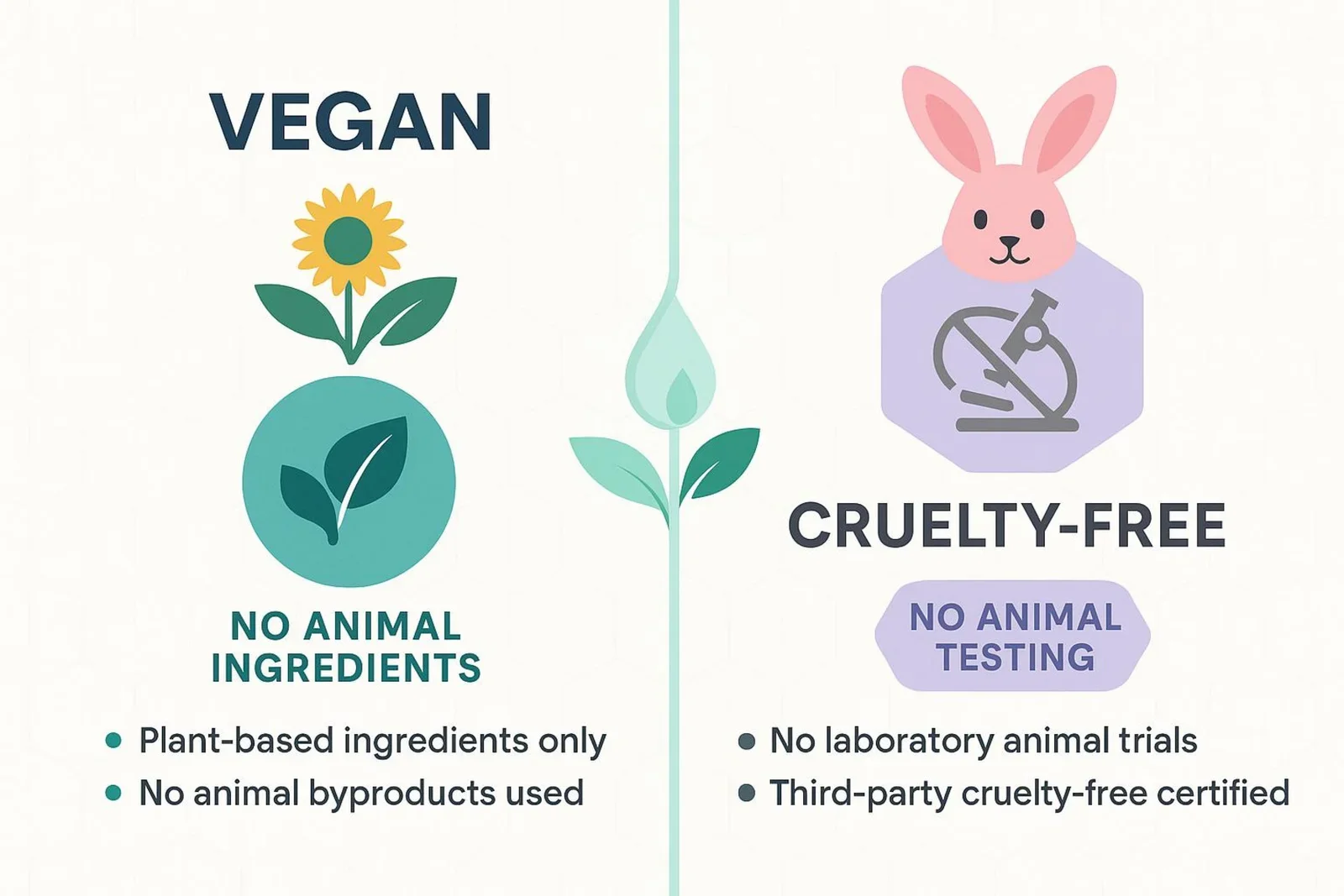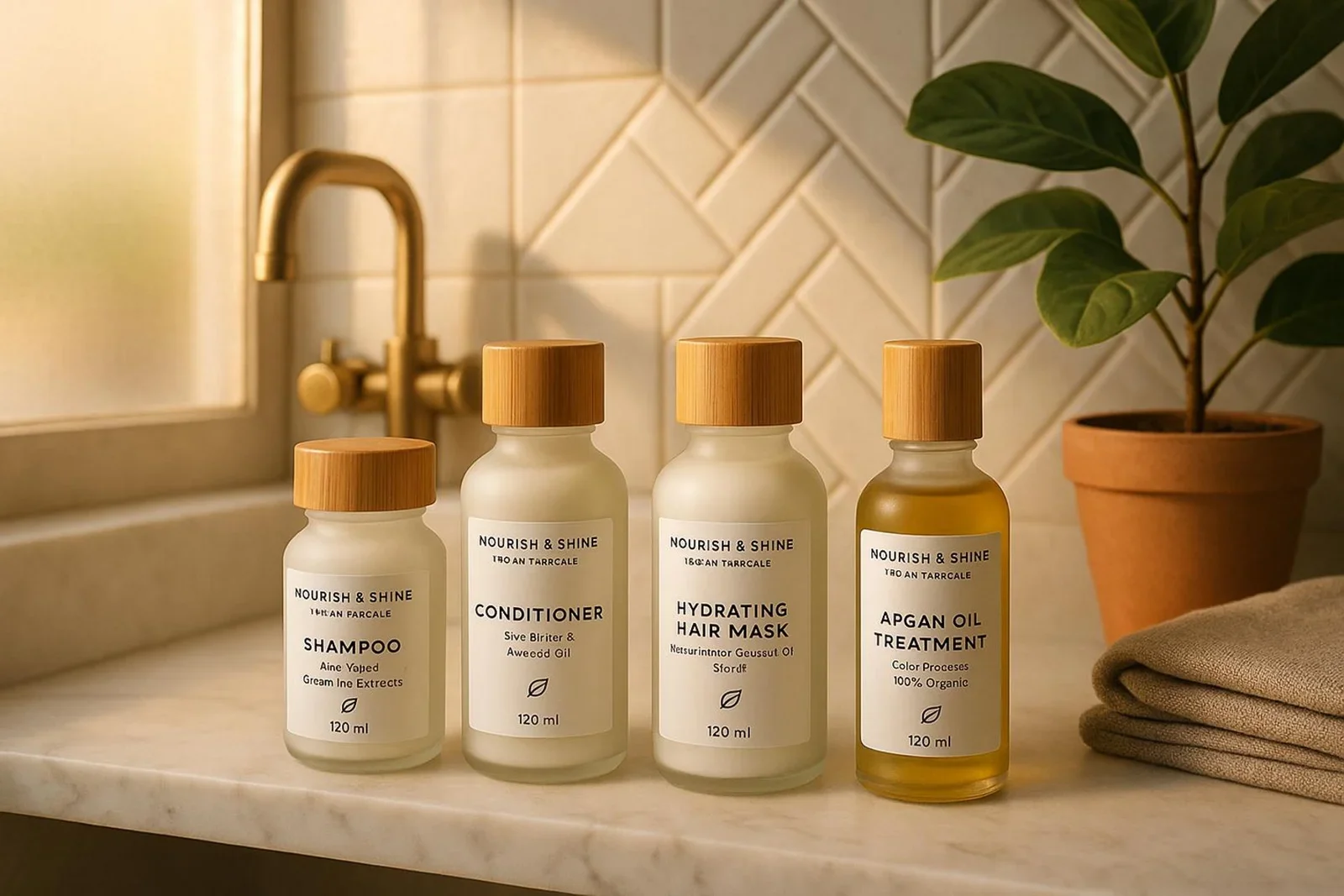Vegan Haircare Explained: Is It Better for Your Hair?
The Australian beauty scene is seeing more people wonder if vegan haircare is really better for their hair. The answer is often "yes," especially for those who want gentle, ethical, and eco-friendly options. Vegan haircare avoids all animal-derived ingredients, using only plant-based ones. This approach isn’t just about stopping animal harm-it’s about using formulas that are usually gentler on your hair and better for the environment, giving people an option apart from standard products with harsh chemicals or animal extracts.
Vegan haircare is more than just a product choice; it’s about treating your hair with plant-based ingredients and matching your personal values to your daily habits. Here, we’ll explain what makes vegan haircare different, talk about the typical ingredients, potential benefits, and give tips on reading labels and finding truly vegan products that make your hair look and feel great.
What is vegan haircare?
Vegan haircare means hair products made without any animal ingredients or by-products. This includes everything from the main ingredients to the dyes and scents. Rather than relying on animals, vegan haircare uses plants to clean, nourish, and style your hair.
Many people are drawn to vegan products for ethical reasons, especially if they live a vegan lifestyle in other areas as well. Choosing vegan haircare is a way to avoid animal exploitation and testing, supporting a kinder, greener beauty routine. Campaigns like Veganuary show people are shifting how they buy beauty products, looking for options that are good for animals and the planet-even for haircare.
How are vegan hair products different from regular ones?
The biggest difference is the ingredient list. Many regular hair products have animal-based ingredients, such as certain proteins or waxes-mainly because they’re cheap or effective. Vegan products use plant-based or synthetic alternatives that don’t involve animals at all.
This choice often results in a simpler, “cleaner” formula. Conventional haircare can contain chemicals like sulphates and parabens, which can dry out hair and cause irritation. Vegan brands tend to use natural plant ingredients and avoid these harsh additives, making products that are both gentle and effective for the hair and scalp.
Common non-vegan ingredients to avoid
When reading a hair product’s ingredients, look out for these common animal-derived items:
Keratin: A protein normally taken from hooves, feathers, or horns.
Collagen: Used for softness, but usually comes from animal tissues.
Honey: Pulls in moisture, but is made by bees.
Beeswax: Adds hold to styling products; comes from bees.
Lanolin: Moisturizing ingredient taken from wool.
Silk Proteins/Amino Acids: Can come from silkworms or other animals.
Many vegan haircare brands use plant or lab-based substitutes, such as soy, oat, or rice protein, which work similarly to animal-based keratin. Always read labels carefully and look for certifying logos to make sure you’re buying truly vegan products.
What ingredients do vegan haircare products use?
Vegan haircare uses a wide variety of plant-based ingredients instead of animal ones. These ingredients are usually full of vitamins, minerals, and natural fats that can be good for your hair and scalp. Here are some main plant-based ingredients and how they help:
Plant-based ingredients and their benefits
Oils: Oils from coconut, argan, jojoba, olive, black seed, and almond hydrate, add shine, and protect hair from damage. Coconut oil also soothes dandruff and dry skin.
Plant extracts: Aloe vera calms the scalp and locks in moisture; peppermint stimulates and feels cool; chamomile and sunflower are calming and soothing.
Vegetable glycerin: Pulls moisture from air into your hair, keeping it soft and hydrated.
Essential oils: Lavender and peppermint add a natural scent and can improve scalp health.
Plant proteins: Soy, oat, rice, or blends like pea and quinoa protein strengthen hair, offering a plant-based alternative to traditional keratin.
Plant butters: Shea, Brazilian, Tucuma, and Murumuru butters provide deep hydration and make hair softer, especially for curly or dry hair.
Botanical extracts: Acai and grape extracts bring antioxidants and vitamins that help repair hair and protect it from damage.
These key ingredients help restore moisture, boost shine, strengthen, and generally improve your hair health, showing that plants can offer plenty of what hair needs.
Why choose natural formulas?
Natural vegan products avoid harsh artificial chemicals, which is good for your hair and your scalp. Without things like sulphates and parabens, these products are kinder and help your hair keep its natural oils, reducing dryness, breakage, and irritation. Plant ingredients also bring vitamins and antioxidants, which support healthier hair, better texture, and less breakage. Natural vegan products usually have fewer allergens and synthetic scents, so they can be more comfortable, especially for those with sensitive skin.
Are vegan and cruelty-free haircare the same?
“Vegan” and “cruelty-free” are not the same, though both are ethical choices. “Cruelty-free” means the product and its ingredients were not tested on animals. “Vegan” means there are no animal-derived ingredients. Some cruelty-free products still contain things like beeswax or lanolin. Some products are vegan but may have been tested on animals where laws require it. The best choice is to look for products that are both vegan and cruelty-free, usually marked clearly on the label with trusted logos.
Main differences between vegan and cruelty-free labels
Vegan: Contains no animal ingredients or by-products of any kind.
Cruelty-Free: Not tested on animals at any point.
| Label | What It Means |
|---|---|
| Vegan | No animal ingredients |
| Cruelty-Free | No animal testing |
| Both | No animal ingredients and no animal testing |
For the most ethical choice, always check for clear “vegan” and “cruelty-free” labels or certifications.
Does vegan haircare help your hair?
Many people find that vegan haircare leads to healthier hair and scalp, because it uses natural plant ingredients and avoids strong chemicals. These products nourish your hair with vitamins and minerals, helping to keep the scalp calm, reducing the risk of irritation, and supporting general hair health. Without irritants or harsh cleaning agents, hair can hold onto its natural oils, becoming shinier, stronger, and less likely to break over time.
Benefits for sensitive scalps and overall health
Vegan formulas are often less likely to irritate sensitive scalps, because they usually avoid things like sulphates, parabens, and artificial scents-common triggers for itchiness or flaking. Soothing ingredients such as aloe vera and chamomile help calm the scalp, protect its moisture, and make a good environment for healthy hair growth. By focusing on gentle, plant-derived components, vegan products support stronger and shinier hair overall.
Allergy risk and safety
Conventional haircare often contains chemicals that can trigger allergies or skin reactions. Vegan haircare excludes many of these common allergens, which may mean fewer problems for people with sensitive skin. However, some natural ingredients can still cause allergies for some people, so always patch test a new product first.
Is vegan haircare suitable for all hair types?
Yes, vegan haircare can work for all hair types. There are options for dry, oily, fine, thick, straight, wavy, curly, coily, and even color-treated hair. For dry hair, look for vegan products with oils and butters. For oily hair, pick shampoos that balance oil without causing dryness. Light vegan products can add volume to thin hair without making it greasy. Curly hair benefits from humectants and butters. Choices are available for damaged hair too, with masks or treatments featuring plant proteins and extracts.
Are there any downsides to vegan haircare?
Vegan haircare has many strengths, but some people face minor challenges when making the switch. For example, people used to quick results from conventional (especially silicone-heavy) products may need time to get used to the feel of silicone-free vegan products, which often focus on long-term hair health rather than short-term gloss. Cost and availability used to be issues, but more brands now offer vegan lines at various price points, and these products are easier to find.
Effectiveness compared with regular haircare
Some think vegan haircare can’t match regular products, especially since traditional products can make hair seem smooth or shiny right away due to ingredients like silicone. But vegan products aim for healthier hair by nourishing it from the inside out, without covering up damage. Results might take longer to show, but they are often more lasting and help the hair stay strong over time.
Cost, accessibility, and product variety
Vegan haircare was once harder to find and often more expensive, but now there’s a much bigger range to choose from in regular shops and supermarkets, and prices can fit most budgets. The performance of vegan products also keeps getting better as companies improve their recipes.
Sometimes vegan shampoos may lather less than traditional ones. This is normal and doesn’t mean they’re not working. The lack of silicones may mean a different texture, but it allows hair to breathe and use the full benefit of natural ingredients.
How to pick the right vegan haircare for you
Finding the best vegan haircare means knowing your hair needs, learning to understand labels, and making choices that suit both your values and your hair health. There are lots of products, so try to be clear about your hair type and concerns and compare ingredients and labels closely.
How to read labels and check certifications
To pick truly vegan and ethical products, closely examine the ingredient list (not just marketing on the front). Watch for the word “vegan” or “100% plant-based”, but also learn the common animal-based ingredients mentioned above. Natural doesn’t always mean vegan.
Look for trustworthy certification logos, like The Vegan Society or PETA’s “vegan and cruelty-free” mark. The Leaping Bunny shows both the product and its ingredients are animal-test free. Some brands make all their products vegan, so researching brands is also helpful.
How to create your own vegan hair routine
Know your hair type and concerns: Is it dry, oily, fine, thick, curly, straight, or damaged? This helps pick the right products.
Start simple: Begin with a gentle vegan shampoo and conditioner for your hair type.
Add treatments slowly: Once your basic products are sorted, consider weekly masks or leave-in conditioners if needed.
Choose vegan styling products: There are plant-based options for dry shampoo, gels, and oils.
Patch test: Always try a new product on a small skin area first to check for reactions.
Give your hair time: Your hair might need time to adjust, especially if you were using many conventional products before.
Seek advice and reviews: Look up trusted brands, read reviews, or consult a haircare professional.
Try samples: Small sizes help you test products before buying full bottles.
Frequently asked questions about vegan haircare
Should you switch to vegan haircare for better hair?
For many people, yes-vegan haircare often leads to healthier and stronger hair in the long run. This is because these products avoid harsh chemicals and use plant-based nourishment. If you’re looking for hair that is softer, shinier, and less irritated, vegan options may be worth trying, especially if you have a sensitive scalp.
Can vegan products cause hair loss?
No, properly formulated vegan haircare does not cause hair loss. In fact, by avoiding harsh chemicals, these products may reduce the risk of damage that can lead to thinning hair. Hair loss can happen for many reasons-genetics, health, or stress-not because of vegan ingredients. If you have sudden hair loss, talk to a doctor to look for other causes.
How long before you see results with vegan haircare?
Results can vary from person to person, but you might notice less scalp irritation within a few washes. For improvements in shine, strength, or texture, expect to wait at least a few weeks or even a couple of months, as your hair adjusts to the new ingredients. Consistency helps. For many people, real changes appear after 2-4 weeks up to 2-3 months of regular use.
Do you live in Sydney?
Get the perfect look at our salon – schedule your appointment now!
Our Services
Check Out Our Instagram
Check out our instagram
Check out our instagram and see our latest posts!
Check out our facebook
Check out our facebook and see our latest
posts!











